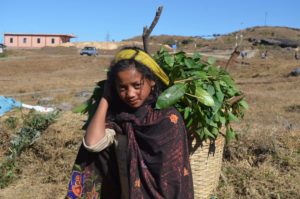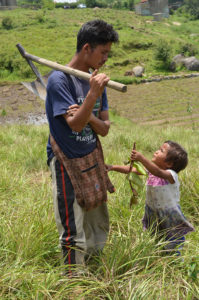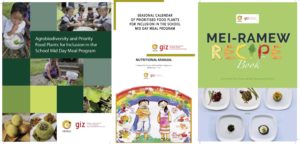
On the 20th December 2016, as part of the Nehru Yuva Kendra Sangathan (NYKS), Shillong, the Tynrai Foundation held a programme at Sohrarim to deliberate on certain new possibilities for the Youth in our region who built on their capacity to seek employment.
The theme of the session was “Agriculture and Youth”. An involvement of Youth was seen from areas not just in Sohrarim. There was an equal number of participants from other villages such as Nongtraw, Dewlieh, Mawjrong, Diengsong and Ladmawphlang who came to share their thoughts. There were also various other organisations such as NESFAS, Rice Socio Development Quid, A Ray of Hope Foundation (AROH), Rympei Jingtip Development Society, Society for Urban and Rural Empowerment (SURE), who came and contributed during the day-long thematic session.
The session was chaired by Mr Shaiphar Dohling, Secretary of Tynrai Foundation, Mr Kaisar Dohling, National Youth Volunteer of 12-Shnong Laitkroh C&RD Block, Resource Person Rev. H H Mohrmen and facilitated by Mr Pius Ranee an Associate at NESFAS.

The gathering served as a platform for the youth to exchange their ideas among various stakeholders. In the present climate where literacy in India is a key for socio-economic progress, the literacy rate of the Northeastern States is providing a positive indication of the simple correlation between growth and literacy. However, its positive impacts are not fast enough as there are not enough jobs or livelihood opportunities available for the youth to be engaged.
Even after the completion of higher education, they still face with certain challenges of being employed. The program highlighted a common consensus about the various stakeholders of a need to create an identity and the problems of youth employment by finding solutions to empower young people to contribute meaningfully to the socio-economic and development of their community.
Agriculture has been a practice that has sustained for several years. The rural youth are facing many hurdles to earn a livelihood. Pressure on arable land is high as in many parts of Meghalaya and around the world; making it difficult to start a farm. They often lack access to credit and many other productive resources for agriculture. The curious nature of the youth needs to be overcome about the urban life which can lead them to a predicament.
According to Rev. H.H. Mohrmen, he suggested “As one of a way out of this problem; the youth must go back to farming as there is scope in this area. A different alternative besides agriculture can be engagement in the livestock business.”
As part of an initiative, NESFAS has the capacity to discover the possibility of establishing a youth based food network at a rural community level with the support of the participated stakeholders. It is with the help of development practitioners, youth leaders, youth associations, producers’ organisations and policy makers alike through networking can provide possible solutions tailored as a hope of change within the society.

Rev. H. H. Mohrmen also recommended, “It is important to identify entrepreneurship ideas within the region and to carefully understand the scope that lies with regards to the maintaining and the execution of these ideas into practice.” A step of this kind, such as farming for livelihood change can contribute to improving the food sovereignty in the region.



